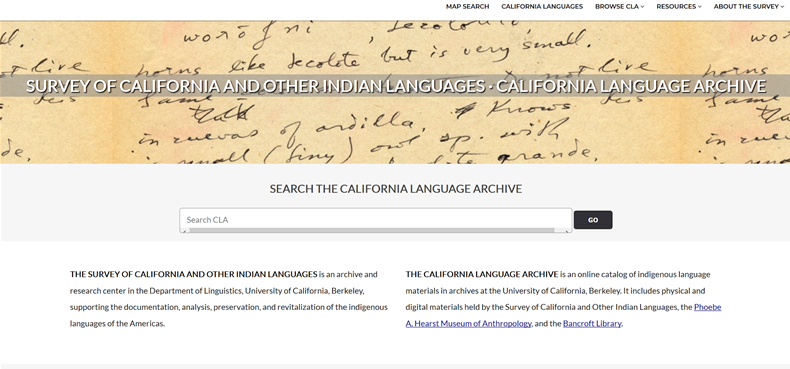2.4 Websites for Dissemination, Archives for Preservation & Access
While the archiving your materials is necessary for long term preservation and for providing wide access, you might also consider creating a website to showcase your collection in the manner you desire. CoRSAL staff can provide examples of how to set up a website and link to items in CoRSAL archive.
An example of this model is the Karuk community website which also has materials in the California Language Archive.

Screenshot of the California Language Archive
The advantages of this model are:
- Free website services offer limited space. For the amount of space needed for the typical documentation project, you will need to buy additional space. Housing materials in an archive means that you do not have to worry about paying for server space and you and your community can continue to to add to a collection for the duration of the project.
- You can control the look and traffic to your website, and include features such as viewer comments and a blog.
- When you are no longer able to sustain the website, the archival material lives on and is still accessible to users through browser searches.
- Website companies may go out of business, in which case you may not be able to recover your files easily. The UNT Digital Library, however, has infrastructure that is not likely to go away. As well, the files are backed up on a regular cycle and can be requested from CoRSAL or directly from the UNT Digital Library.
- Free website companies do not offer support for metadata (more on this in the following modules).
- Many websites aren’t mobile compatible, but the UNT Digital Library makes it possible to stream videos and access other materials easily through the phone.
- YouTube is an excellent platform for now, but we cannot be sure of what developments in technology mean for YouTube.
To read more about the difference between websites and archives and how these can be used for language documentation, we recommend reading this brief write up by Nick Thieberger.
